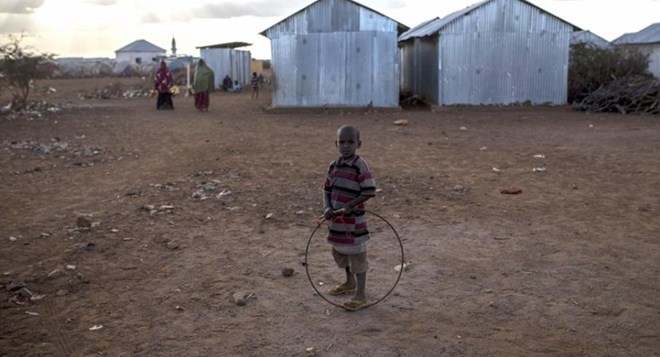A global humanitarian organization on Wednesday called for urgent help for Somali people as nearly a quarter of the Horn of Africa nation is “struggling to feed itself due to an ongoing drought.”
“Hundreds of water sources have dried up, and countless animals and crops have died as the result of the intensifying drought,” Save the Children said in a statement.
“Many families no longer have access to food and safe drinking water and have lost their life savings in the deaths of their livestock. In some areas, water prices have skyrocketed,” the statement added.
Severe drought is gripping most of Somalia as seasonal rains failed for the third time since late 2020, according to the UN Office for the Coordination of Humanitarian Affairs (OCHA).
On Tuesday, Somalia’s prime minister declared a state of emergency over the deadly drought in the Horn of Africa nation.
Somalia is on the frontline of climate change and has experienced 30-plus climate-related hazards since 1990, including 12 droughts and 19 floods, the UN said on Tuesday.
According to Save the Children, around 2.6 million people in Somalia, nearly 22 % of the population, are affected by the drought and around 113,000 people are displaced.
“In addition, 1.2 million children under the age of five are projected to be acutely malnourished by the end of the year, with nearly 213,400 of them severely malnourished,” it added.
“Our staff in the field are witnessing dried up water sources, no crops, and no pastures, animals dying and people moving away from their communities after losing their livestock,” Mohamud Mohamed Hassan, said Save the Children’s country director in Somalia.
“Those who cannot afford to pay for water and food face the prospect of dying of hunger and lack of water,” Hassan said.
“This is an unsustainable situation for the people of Somalia. Somalis are resilient, they are adaptive, but no one can adapt quickly to such dramatic changes in the climate.”
Calling on the global community to take responsibility, he said: “Children are bearing the brunt of the climate crisis in Somalia.”
“Resources need to come, now, to this country so that humanitarian actors can respond to the worsening situation quickly and save lives. The time to act is now, not tomorrow, not next week, not next year,” he added.
Source:AA





